- Faculty of Engineering
- Department of Electronics and Computer Engineering Department of Electrical Systems Engineering Department of Mechanical Systems Engineering Department of Intelligent Mechanical Engineering Department of Civil and Environmental Engineering Department of Architectural Engineering
- Faculty of Applied Information Science
- Department of Computer Science Department of Information and Communication Department of Information Systems and Management
- Faculty of Environmental Studies
- Department of Architectural Design Department of Global Environment Studies
- Faculty of Life Sciences
- Department of Clinical Engineering Department of Food Sciences and Biotechnology
- Graduate School
- Major in Intelligent Structure and Functional Science Major in Electrical and Electronic Engineering Major in Mechanical Systems Engineering Major in Civil and Architectural Engineering Major in Information Systems Science Major in Environmental Studies Major in Biological and Biomedical Engineering
Faculty of Engineering
Department of Intelligent Mechanical Engineering
- Department Introduction
- Education and Research Areas
- Subject Introduction
- Curriculum
- Careers and Further Study
- Department Introduction MOVIE
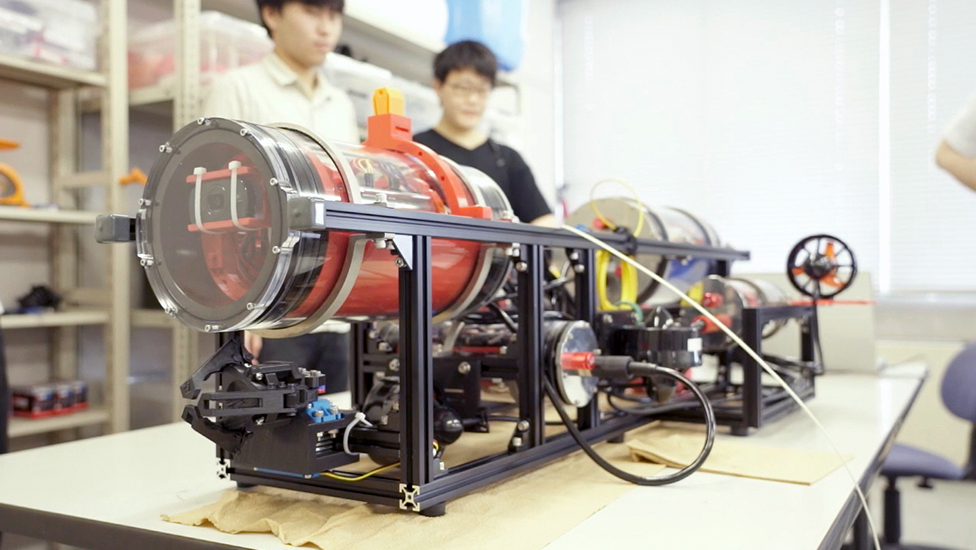
Producing engineers equipped with the technical expertise to handle the manufacturing of tomorrow.
“Intelligent technology” is indispensable to next-generation automobiles, cutting-edge robotics and the future of manufacturing in general. In the Department of Intelligent Mechanical Engineering, students are equipped with the physics-related, mathematical, mechanical, electrical/electronic and IT-related knowledge essential to intelligent technology; mechanical engineering-based technical expertise in design, control and production systems; and, moreover, a refined ability to determine what knowledge or technical expertise can be applied to solve a given problem.
Education and Research Areas
-
Next-Generation Automobiles
In the context of learning about the progress being made on automated driving and other automated control technology, students will participate in practical training where they will be required to dismantle an actual car engine, and they will receive instruction in a broad range of automotive engineering knowledge, such as that pertaining to automotive functions, structures, mechanisms and maneuverability in the development of advanced self-driving cars. In addition, students will learn about technologies which will make next-generation automobiles environmentally-friendly, energy-efficient and safe.
-
Advanced Robotics
In the context of a growing need for robotics, including a need for industrial robots to perform work that has been traditionally handled by humans, students will learn a broad spectrum of robotics-related knowledge, from the history of robots to robot mechanics and industrial robotic systems. Students will become familiar with intelligent machine structure and motion control system technology; will acquire a broad knowledge of robotic engineering technology; and will engage in the research and development of robots capable of partnering with humans.
-
Intelligent Production Systems
Through laboratory and practical training exercises, students will become familiar with fabrication, actuation and management technologies required for productivity enhancement. We live in an era of value creation through machinery and systems integration. Students will use 3D CAD-driven 3D modeling as the basis for gaining a deeper understanding of a range of topics, from manufacturing fundamentals to various production methods and production systems, and they will learn the skills necessary to perform highly efficient manufacturing using simulation techniques.
Subject Introduction
-
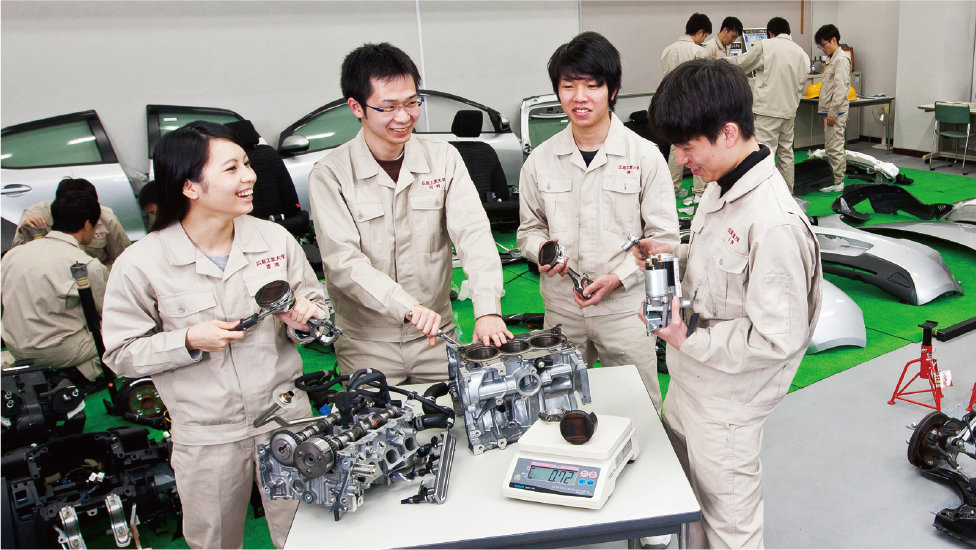
Intelligent Mechanical Engineering Practical Training
Students will disassemble an actual automobile engine and measure the size of the cylinders, pistons and other parts. Manufacturing is not possible without a concept or sense of “size.” This practical training helps familiarize students with measurement technology and is particularly well-received among students with an interest in automobiles.
-
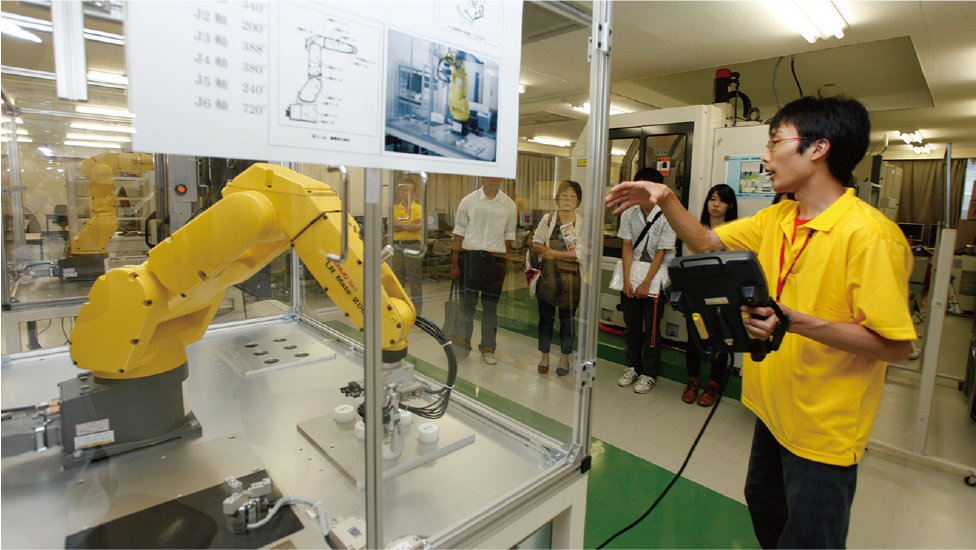
Intelligent Mechanical Engineering Laboratory
The information students learn in this class about industrial robot operation is directly applicable in future employment. In addition to simulations of state-of-the-art intelligent robot operations, students will enhance their skills as engineers by learning about NC machine tools and CAD/CAM applied/practical technology.
-
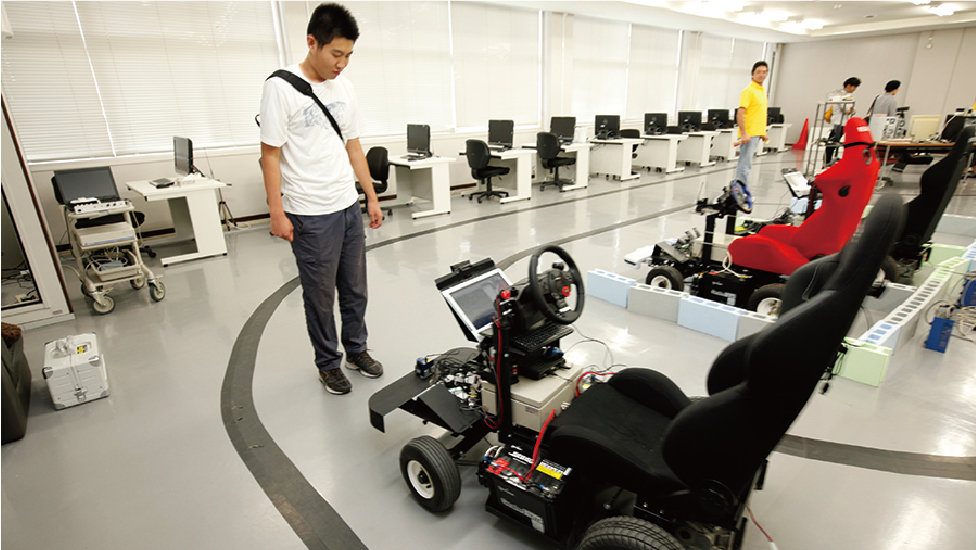
Automotive Systems
In this subject, students will learn about technologies which will make next-generation automobiles environmentally-friendly, energy-efficient and safe. They will acquire knowledge about the future of manufacturing that will help in building a sustainable society where cars exist in harmony with the environment.
-
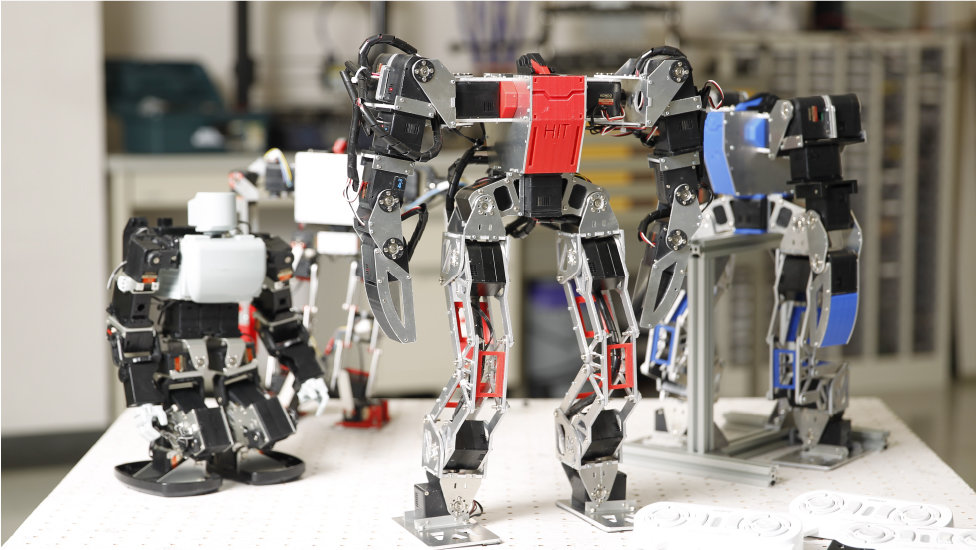
Robotic Motion Control
In the modern world, robots are indispensable to all areas of life. In this class, students will learn about robot motion control system technology while also exploring new control theory applications.
-
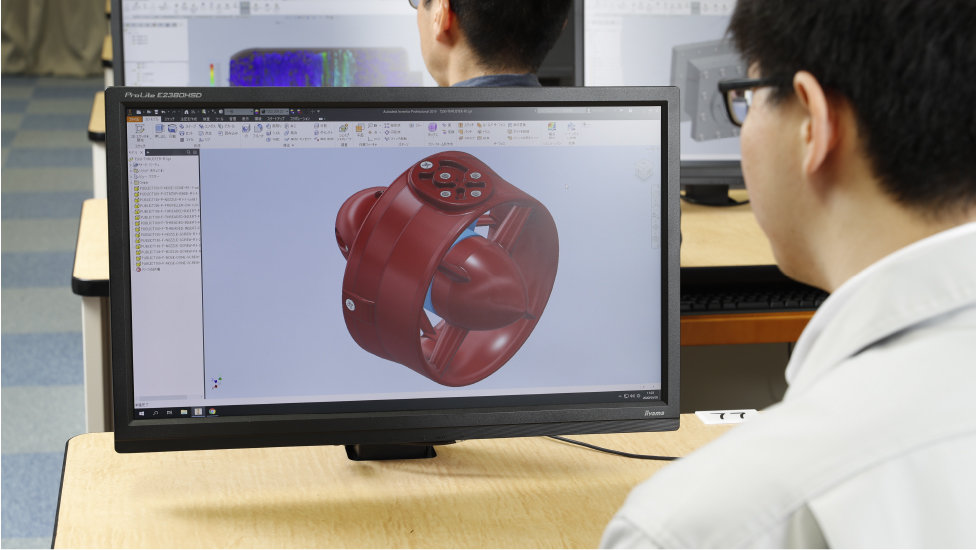
Production Control Engineering
Students will learn about the various elements, such as quality, cost and schedule, in the production control-related decision-making process, as well as about the fundamentals of optimization analysis. They will also be equipped with fundamental skills for using CAD/CAE simulations to improve productivity and foster greater efficiency.
Curriculum
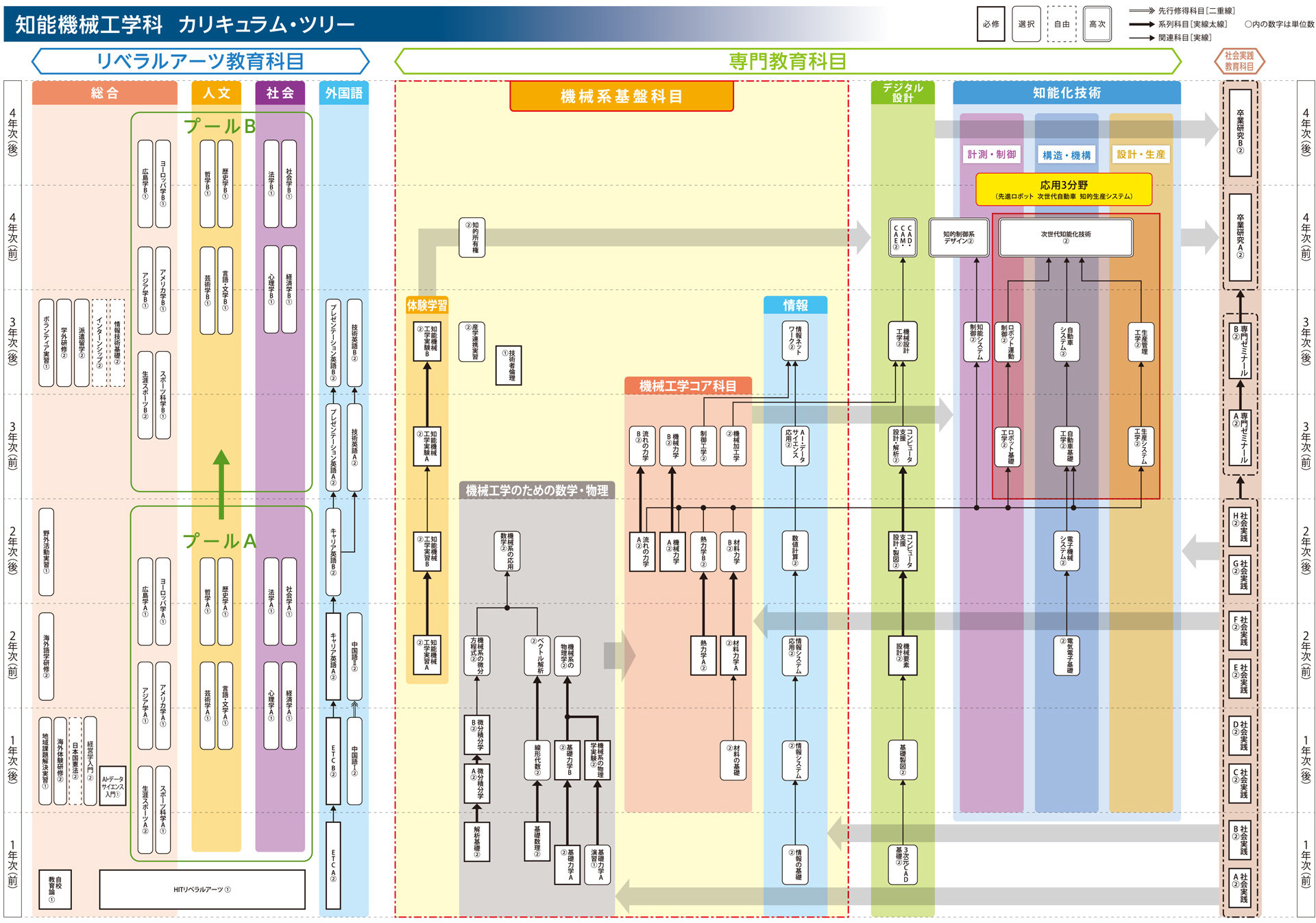
Japanese only






